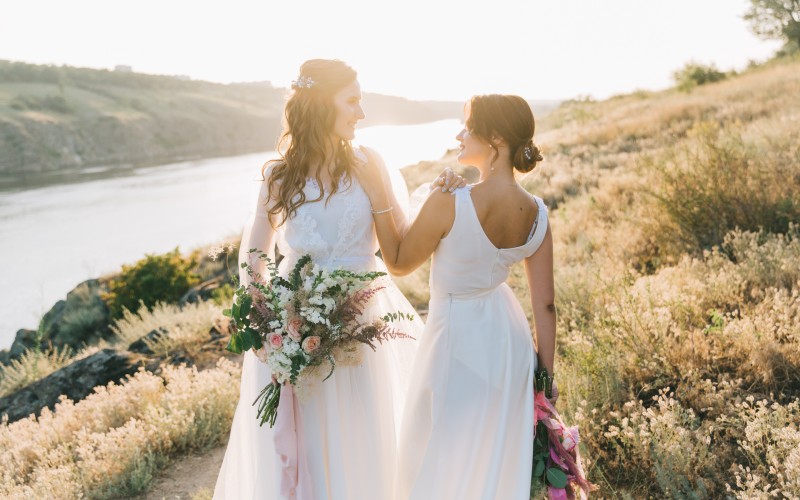
When the Marriage and Civil Partnership (Scotland) Bill was passed by an overwhelming majority of MSPs in 2014, some same-sex couples decided to tie the knot just minutes after the legislation came into effect. And who can blame them? The progression of LGBT+ rights to this point had been a long, incremental process and not without its setbacks, so to finally achieve marriage equality in the law was a milestone worth celebrating.
A centuries long struggle
Scotland prides itself on being a progressive country, but this hasn’t always been the case. LGBT+ people have long been discriminated against, and it’s only through the tenacity and perseverance of the community themselves and their allies that things have changed for the better. Historically, male same-sex relationships were criminalised and, upon conviction, initially punishable by death and later by imprisonment. In contrast, female same-sex relationships weren’t targeted by the law, only because lawmakers simply didn’t acknowledge that such relationships existed.
Although the death penalty for homosexuals was abolished in 1885, it was another 95 years until same-sex acts between men over the age of 21 were decriminalised in 1980. Throughout the following decades, discrimination continued, particularly in the wake of the HIV/Aids epidemic and a political landscape that prohibited the “promotion or teaching of homosexuality” in schools. Many LGBT+ people were forced to hide their sexuality from family, friends, and colleagues for fear of the potential consequences.
Campaigners remained resolute in their fight for equality, and the next major victory came in 2001 when the age of consent was aligned to that of opposite sex relationships.
Legal recognition of same-sex relationships
Despite this progress, same-sex couples still had no way of having their relationships legally recognised. This was addressed in 2004 by the introduction of civil partnerships, which for the first time afforded same-sex couples similar rights and responsibilities to those of a heterosexual married couple. This momentous change in the law signalled the turning tide towards a culture of equality and acceptance.
Well-intentioned and successful as the introduction of civil partnerships may have been, many still felt that they didn’t come with the level of societal recognition as marriage, resulting in what was effectively a two-tiered system of legal recognition.
Over the next decade, further strides were made in the advancement of LGBT+ rights including fostering and adoption being opened to same-sex couples in 2009. The campaign for marriage equality gained momentum and the conversation came to dominate Scottish politics. By the time Parliament considered the matter, opinion polls showed consistent public support for a change in the law.
Marriage equality at last
Finally on 4th February 2014, the Scottish Parliament voted 105 to 18 to legalise same-sex marriage, becoming just the 17th legislature in the world to do so. This was a historic moment in the development of LGBT+ rights and placed Scotland firmly on the map as a country where all citizens, regardless of their sexual orientation, can celebrate their love and commitment through marriage.
Since then, thousands of same-sex couples have tied the knot in wedding ceremonies or converted their civil partnership to marriage. In 2015, the first full year following the legislation coming into effect, 1,671 ceremonies involved same-sex couples, representing 6% of all marriages registered in Scotland that year. The following years saw between 912 and 998 same-sex marriages registered, hindered only by a dip during 2020 due to pandemic restrictions. The most recent figures available show that the figure rose again 1,112, representing 3.8% of marriages overall. Since 2014, more than 8,000 same-sex couples have embraced the opportunity to celebrate their love and commitment through the institution marriage.
One further change in the law came in 2020 when civil partnerships were extended to opposite-sex couples. Marriage isn’t for everyone, and this change meant that all couples would have the same options open to them should they wish to formalise their relationship.
There are now 33 countries around the world that recognise same-sex marriage, and a further 34 that offer some form of legal recognition to same-sex couples. Unfortunately, 64 countries still criminalise homosexuality. Scotland’s progress ought to serve as a beacon of hope for those that haven’t yet embraced equality, as the global trend towards decriminalisation continues.
If you are looking for advice relating to marriage, civil partnerships, or any aspect of Family Law, please get in touch with a member of our Family Law team on 03330 430150.

